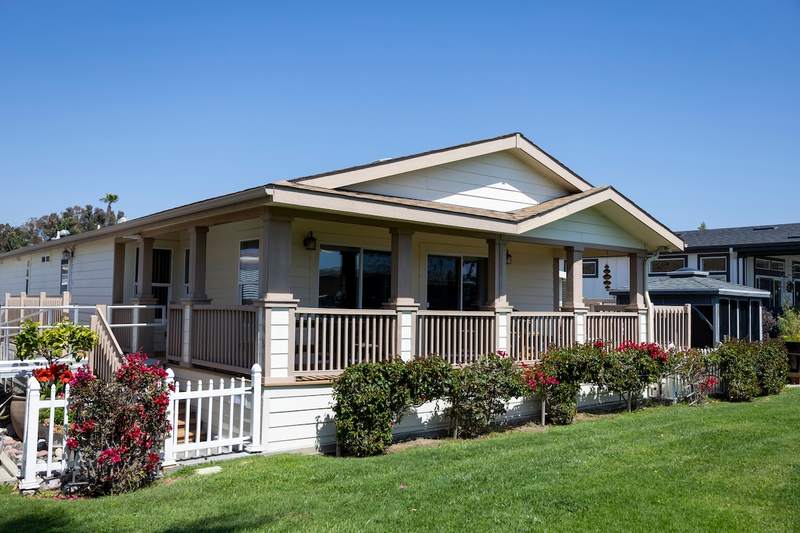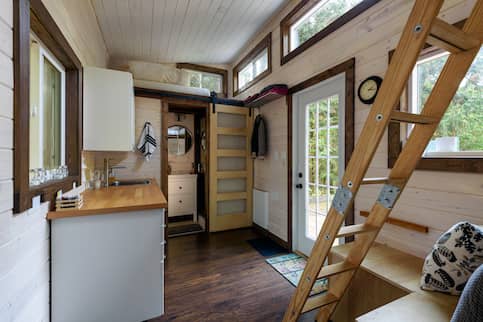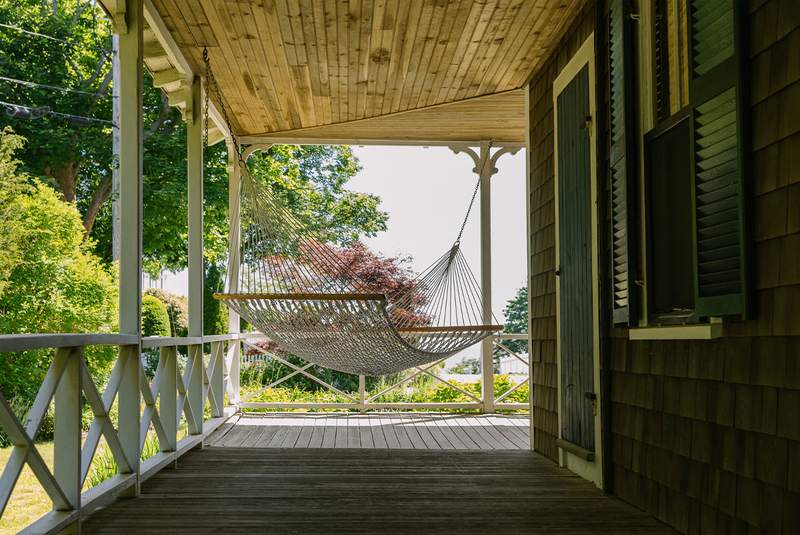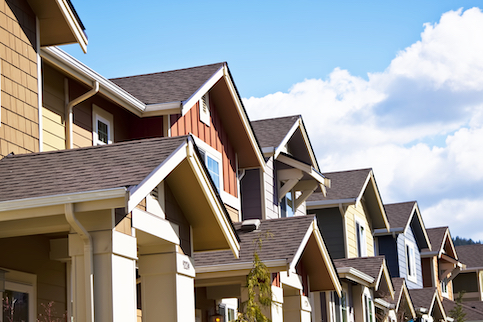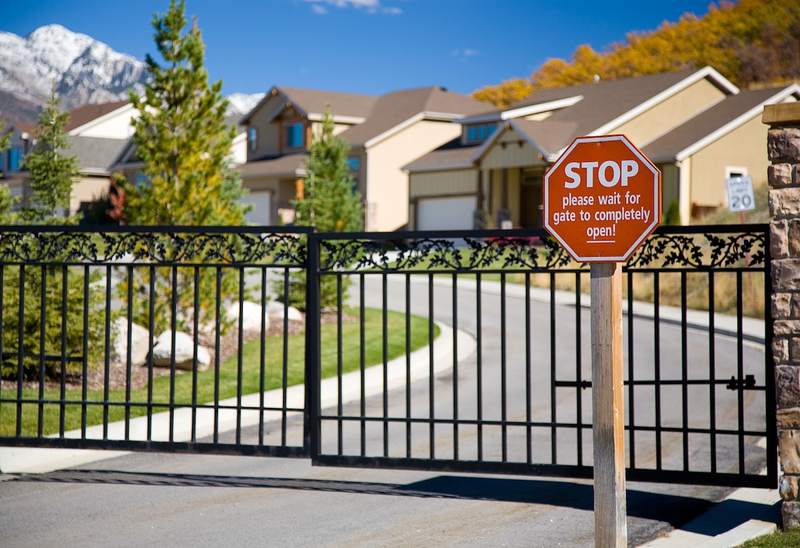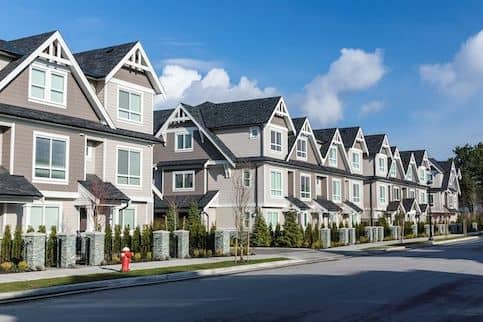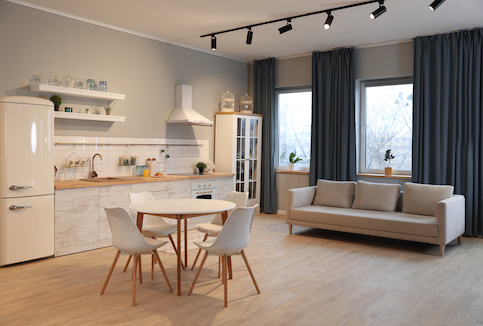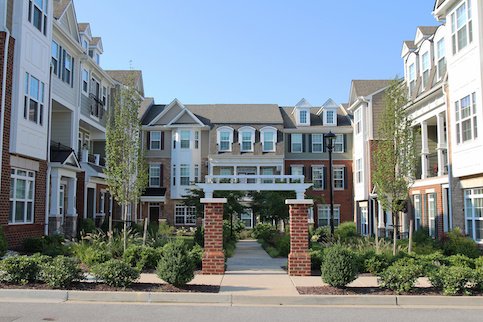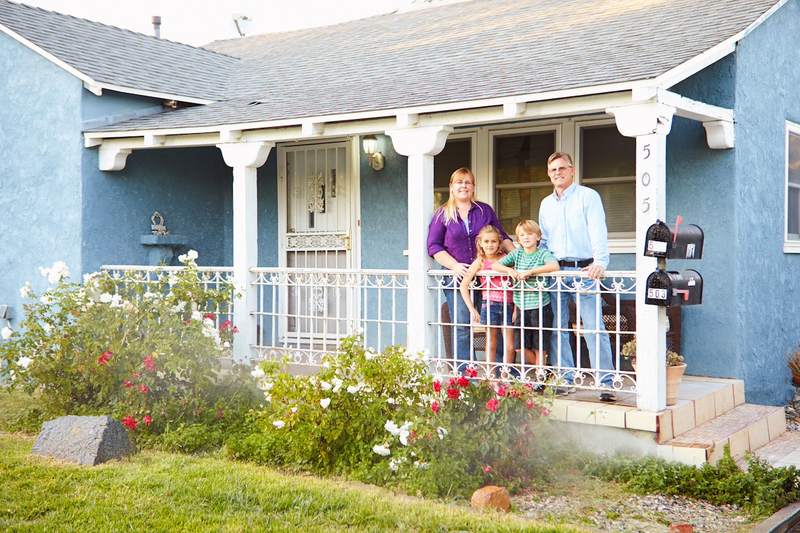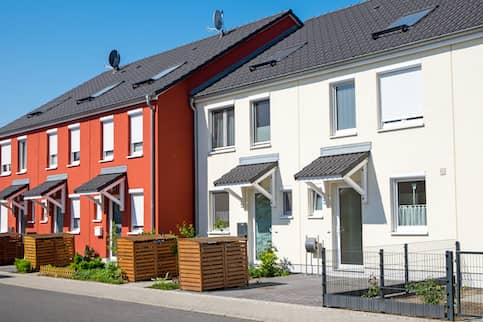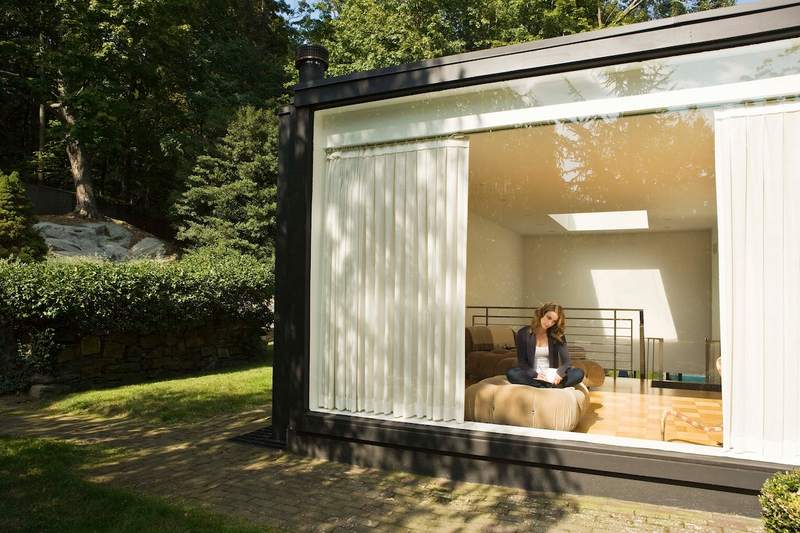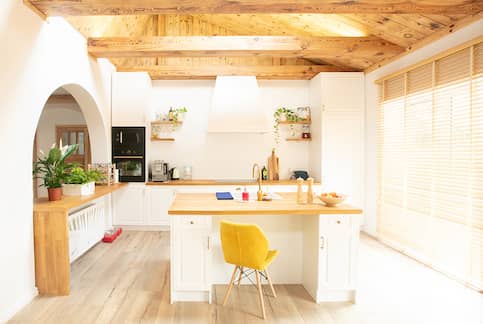Effective Nov. 16, 2025, both Fannie Mae and Freddie Mac no longer require a specific minimum credit score for conventional loan approval. Instead, loan decisions will be based on an analysis of overall credit risk factors.
Manufactured homes are often misunderstood when discussing the different types of homes you can buy. That’s because people frequently use the term mobile home when they mean manufactured home without understanding the difference. Put simply, a manufactured home is built in a factory and transported to where it will be installed. Manufactured homes provide an affordable alternative to traditional homes while meeting federal standards for safety and offering options that make them comfortable, efficient and pleasant to live in.
Here’s what you need to know about manufactured homes, including how much they cost, how to buy one, and the pros and cons of living in one.
Key Takeaways:
- A manufactured home is built in a factory and transported to the home site.
- You can either buy the land for your manufactured home or lease a plot in a manufactured home community.
- If your manufactured home will be permanently affixed to a foundation, you can buy it with a traditional loan. If not, you can combine a chattel mortgage and a land loan.
Manufactured Houses, Defined
A manufactured house is built in a factory on a temporary chassis used to carry it to a location where it is installed on a short-term or long-term foundation. In comparison, a traditional home is built on-site on a permanent foundation.
Manufactured House Vs. Mobile Home
The terms “manufactured home” and “mobile home” are often used interchangeably, but there are significant differences.
Manufactured homes meet standards set by the U.S. Department of Housing and Urban Development. Those standards took effect on June 15, 1976. Here are some of HUD’s codes:
- The home must be at least 320 square feet.
- There must be two outside doors located at least 12 feet from each other in single-wide units.
- All bedrooms must have at least 50 square feet of floor area.
- Two-person bedrooms must have at least 70 square feet of floor area.
- The home must have at least one living area with at least 150 square feet.
- The home must have adequate windows for ventilation.
The term mobile home refers to manufactured homes built before that date and such homes may not meet HUD standards.
Manufactured Homes Vs. Modular Homes
There can be some confusion about manufactured and modular homes. Manufactured homes must meet HUD standards, but modular homes do not. Manufactured homes often are built on a steel chassis, while modular homes are built on a traditional permanent foundation.
A few other quick differences separate manufactured homes from modular homes:
- Manufactured homes generally cost less per square foot.
- Manufactured homes often depreciate faster than modular homes.
- A modular home cannot be moved once installed.
- Modular homes usually arrive at their location site in multiple pieces.
- A modular home may be easier to finance because it uses a permanent foundation.
Manufactured Homes Vs. Kit Homes
A kit home is another type of manufactured home option. While manufactured homes arrive on-site already built, kit homes come in separate parts that have to be assembled by either the homeowner or a contractor. Kit homes can be more affordable than traditional on-site homes due to the extra assembly required.
What’s Your Goal?
Buy A Home
Discover mortgage options that fit your unique financial needs.

Refinance
Refinance your mortgage to have more money for what matters.
Tap Into Equity
Use your home’s equity and unlock cash to achieve your goals.
Manufactured Home Features And Options
Manufactured homes are built in sections and typically come in three configurations: single-, double- and triple-wide.
- Single-wide: A manufactured home built in one long section.
- Double-wide: A manufactured home consisting of two sections that are joined together. This is the most popular plan with first-time home buyers.
- Triple-wide: A manufactured home consisting of three sections joined together.
Manufactured homes can have more space than you might expect – including a kitchen, living room, and multiple bedrooms. Modern manufactured homes can come with high ceilings, garages, covered porches, and decks.
Some manufacturers allow buyers to customize their home, including cabinetry, flooring choices, and extra insulation.
Ready To Become A Homeowner?
Get matched with a lender that can help you find the right mortgage.
Finding Land For Your Manufactured Home
You can buy or lease the land where you plan to install a manufactured home.
- If your home will be permanently attached to a foundation, you can buy the manufactured home and land with one traditional mortgage.
- If the home won’t be attached to a foundation, you’ll need to get separate financing for the manufactured home and the land.
- You may rent a plot of land owned by a homeowners association for your manufactured home.
Take The First Step To Buying A Home
Find a lender that will work with your unique financial situation.
Manufactured Home Costs
Establishing a budget is a key part of buying a house, and cost is one of the primary reasons people purchase a manufactured home. But just like a traditional home, the cost varies depending on the type of manufactured house you buy and the size.
According to the U.S. Census Bureau’s Manufactured Housing Survey, the average sales price of a new manufactured home was $118,800 in March 2024. The median sales price of all homes sold in the United States is $412,300 for the second quarter of 2024.
Manufacturing efficiency is the key factor explaining the price difference in this comparison. Most manufactured homes are built on an assembly line, which is a controlled environment. Site-built homes can encounter delays because of weather and supply issues.
Buying a manufactured home is much less expensive than building a home because they’re cheaper to make. Manufacturers can save money by buying the materials in bulk and building the homes in a controlled factory environment to maximize efficiency.
Let’s take a look at some of the other manufactured home costs to consider:
- Square footage. Larger homes typically cost more. According to the U.S. Census Bureau, a manufactured single-wide home had an average sale price of $82,900, and you could expect to pay closer to $144,800 for a double-wide.
- Land costs. You can either buy the land where your manufactured home will be installed or lease a plot in a manufactured-home community. The cost of land will depend on where you’re buying.
- Taxes. Most states consider manufactured homes property, meaning you can expect to pay property taxes. The amount you’ll owe will depend on the value of your home and location.
- Foundation. If your home is going to be permanently attached to the land, you’ll need to buy or build a foundation. According to Home Advisor, a typical foundation can cost anywhere from $4,047 to $14,736.
- Delivery and installation. The cost of delivery and installation will depend on the manufacturer. The purchase price might include the delivery cost if you live close enough to the facility.
- Utilities. Like a traditional home, you’ll have to pay utility bills, such as water, electricity, internet and natural gas.
How To Buy A Manufactured Home: Financing Options To Consider
While manufactured houses are less expensive than their traditional counterparts, that doesn’t mean most buyers can afford a cash purchase. Thankfully, there are mortgage options available to potential borrowers. If your manufactured home is going to be permanently attached to the land on a foundation, you can finance the purchase with a single loan. Here are some of the different loan types to consider:
- Conventional loan: Depending on the lender, you may be able to use a conventional home loan to buy your manufactured house. However, you’ll need to install it on a permanent foundation to qualify. You’ll also need a credit score of at least 620 and a down payment of at least 3%.
- Federal Housing Administration loan: FHA loans are available to borrowers with lower credit scores. Borrowers can use an FHA loan to purchase a manufactured house and plot of land, but the home must be a primary residence. You’ll also typically need a credit score of at least 500 with a down payment of 10% or a credit score of at least 580 and a down payment of at least 3.5% to qualify.
- Veterans Affairs loan: If you’re a military veteran, active-duty service member or the surviving spouse of one, you may be able to use a VA loan if your lender determines the home is real property. Traditional VA loans have no down payment requirement, but you’ll need a down payment of at least 5% to buy a manufactured home with this loan type. There’s technically no credit score minimum, though many lenders will require you to have a credit score of at least 620.
- U.S. Department of Agriculture loan: If you want to purchase a manufactured home and live in a rural area, a USDA loan could be an option. You won’t need to make a down payment to buy a manufactured home with this loan type, but you will need a credit score of at least 620.
- Chattel mortgage: If the manufactured home isn’t going to be permanently connected to the land, you can get a chattel loan – a loan specifically for moveable structures. A chattel loan uses the manufactured home you’re buying as collateral and can be combined with a land loan. However, the interest rate on a chattel mortgage may be higher than a conventional mortgage rate. You’ll also need a down payment of at least 5% and a credit score of at least 575.
- Manufacturer financing: Some manufactured home companies offer their customers financing directly or through a third-party lender.
The Pros And Cons Of Manufactured Homes
Like any single-family home, a manufactured house has advantages and disadvantages. Before buying, you should carefully consider the pros and cons.
Pros
Owning a manufactured home can bring these benefits:
HUD Safety Regulations
HUD has strict regulations to control the quality of modern manufactured homes. This means your manufactured home must meet specific requirements before you purchase it.
Cost
Manufactured homes are typically more affordable than traditional homes, making them an option for prospective buyers who have been priced out of the market. If the home is permanently affixed to a foundation, you can qualify for financing with typical interest rates. Newly manufactured homes are also typically energy efficient, which can help you save on energy costs.
Versatile Styles
Another benefit of this type of home is that many manufacturers offer a wide variety of sizes, styles and layouts. For instance, a single-wide home could have one or two bedrooms, while a double-wide may offer three to four bedrooms. You should be able to find the right option that fits your needs while staying within your budget.
Simplified Moving Process
Since manufactured homes are built on a temporary chassis, they can be transported from one location to another. If you want to relocate, you can purchase a new plot of land and hire a company to move your house.
Cons
Owning a manufactured house can come with drawbacks:
Limited Locations
Some towns and cities have zoning restrictions on where you can put a manufactured home. Rural areas typically have fewer of these rules.
Financing Difficulties
Even though there are several types of loans you can use to finance your manufactured house, it can be difficult to secure approval. If you don’t want to use a permanent foundation or your home isn’t considered real property, your loan will likely come with higher interest rates than conventional loans.
Land Ownership
There are many advantages to buying a manufactured home, but the biggest downside is that you might not own the land your home sits on. More than 37% of manufactured homes are in communities where a landowner rents land to homeowners. If you don’t own the land where you’ve installed the manufactured home, the home could decrease in value while the value of the land increases.
FAQ
Here are answers to common questions about what a manufactured home is.
The Bottom Line
There’s no shortage of different home types on the market. Fortunately, buyers looking at the lower end of the price spectrum can find a safe, affordable path to homeownership by choosing the manufactured home route. Unlike outdated stereotypes about mobile homes, manufactured homes are well-built and made of high-quality materials.
More From Quicken Loans:

Rory Arnold
Rory Arnold is a Los Angeles-based writer who has contributed to a variety of publications, including Quicken Loans, LowerMyBills, Ranker, Earth.com and JerseyDigs. He has also been quoted in The Atlantic. Rory received his Bachelor of Science in Media, Culture and Communication from New York University. He also completed the SoFi/Coursera Fundamentals of Personal Finance Specialization consisting of five courses: Introduction to Personal Finance, Saving Money for the Future, Managing Debt, Fundamentals of Investing, and Risk Management in Personal Finance.
